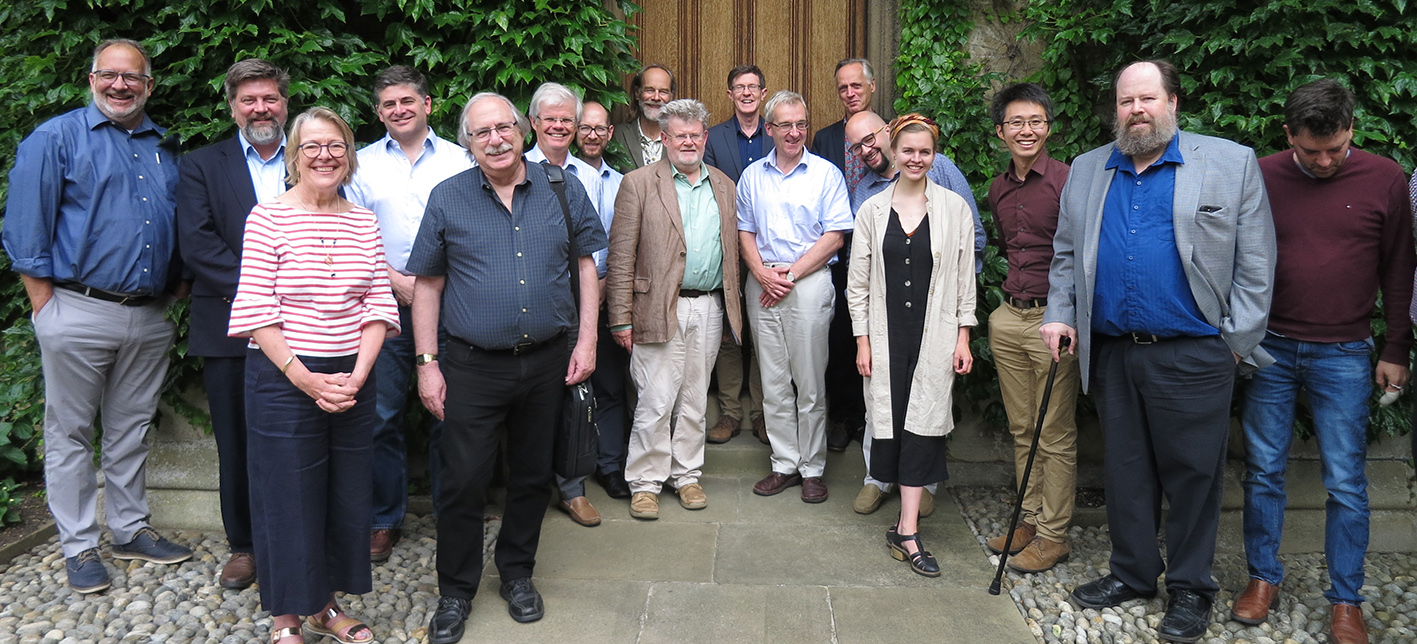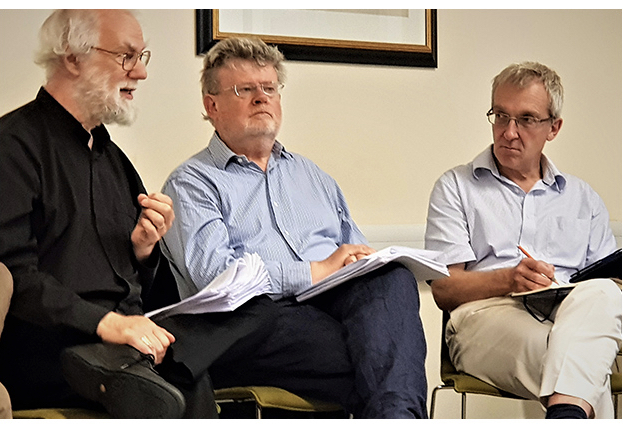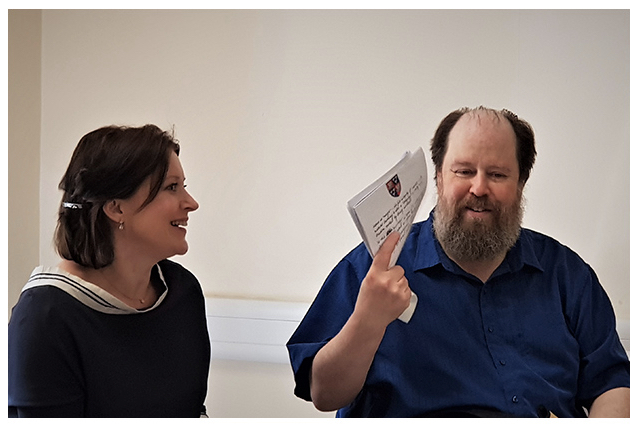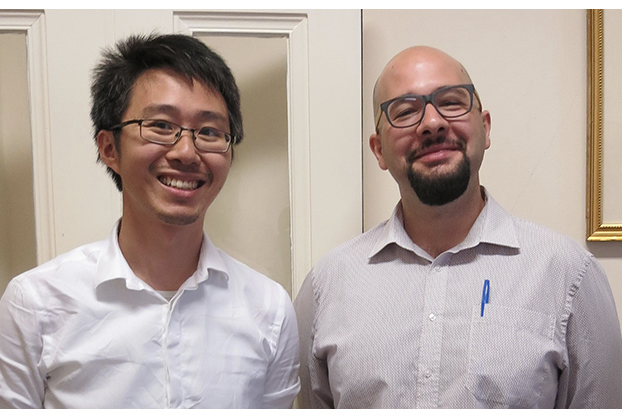
On 11–13 July 2019 most of the 24 participants in the After Science and Religion Project gathered together in Cambridge to discuss the work of the project. This project is run out of IASH and is funded by the Templeton World Charity Foundation. Participants include luminaries such as Rowan Williams, Catherine Pickstock, Charles Taylor, David Bentley Hart, John Milbank, and William Desmond in the theologian and philosopher camp; Peter Harrison and Bernard Lightman in the historian camp; and Tom McLeish, David Wilkinson, and Andrew Davison in the scientist camp. Of course, the other thirteen participants are outstanding thinkers as well, but perhaps not so well known.

The aim of the project was to get philosophical theologians, who have deep familiarity not only with modern and postmodern thinking, but also with patristic and medieval thinking, to think about ‘science and religion’ taking Peter Harrison’s text The Territories of Science and Religion (2015) as a starting point. To date, philosophical theology has had little direct interest in the ‘science and religion’ space, being uncomfortable with the terms of its more common presentation. So contemporary scholarship in the history and sociology of both ‘science’ and ‘religion’ and this group were obviously meant to come together! For, as Peter Harrison points out, "both ‘science’ and ‘religion’ are impossible to tightly define, being moveable feasts, and very much contextually located in history and culture." Hence, the ‘after’ bit of the project title refers to embracing more fluid and complex notions of ‘science’ and ‘religion’ than the dominant set of definitions typically assumed within our contemporary life-world. "Those standard definitions," he says, "have a particular historical development, only really maturing in the late 19th century."

The theological cohort for this project (18 out of 24) has never really thought of theology as a sub-set of ‘religion’, and has found the notion of ‘the secular’ itself to be theological in origin and nature, so being ‘after’ religion was no challenge for them. Likewise the idea that modern ‘science’ is not the definable and correct way of understanding nature was no news to them. The relationship between natural knowledge and Christian faith has profoundly changed, more than once, over the past two millennia, and any deep student of the Christian traditions of natural philosophy will be very aware of this.

The three days at Corpus Christi were full and stimulating. All papers were taken as read, but each participant was assigned someone else’s paper to summarize and question, and this gave excellent scope for a detailed discussion of each paper. This was the second and final colloquium, so the end of this gathering revolved around thinking about outputs. This was more demanding than discussing science and religion, as questions of reception, audience and presentation are tricky for this project which is something of a boat-rocker by design. Since that time a number of output organizing schemes have been tried and a number of high profile publishing houses approached. The process is going well and out-puts should be wound up later this year.
Most notably, the time together was a delight for the mind and for friendship. This has been an exceptionally fine project and the out-puts are set to make quite a splash in the ‘science and religion’ space.
Images courtesy of Paul Tyson and Peter Harrison.
